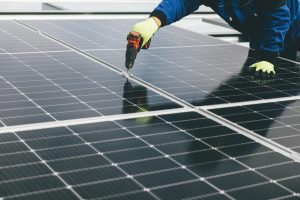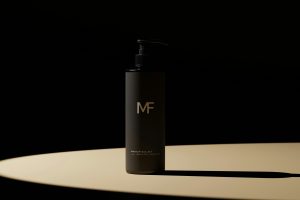Mycelium Insulation: Fungal Tech Reducing Vehicle Emissions
With global warming and climate change becoming pressing issues, there is a growing need for innovative solutions to reduce carbon emissions. While electric vehicles and renewable energy sources are gaining popularity, there is one technology that is still relatively unknown – mycelium insulation. This groundbreaking fungal technology has the potential to significantly reduce vehicle emissions and contribute to a greener future. In this article, we will take a closer look at mycelium insulation and how it is revolutionizing the automotive industry.
The Power of Fungi
Mycelium, also known as mushroom root, is the vegetative part of fungi. It is made up of tiny threads that branch out and form a complex network underground. This underground network is responsible for decomposing organic matter and recycling nutrients in the soil. But, it’s not just beneficial for the environment, mycelium also has some incredible properties that make it a valuable material in various industries.
The Role of Mycelium in Insulation
Mycelium insulation, also known as mycotecture, is a sustainable material made from the root structure of mushrooms. The mycelium is combined with agricultural waste, such as corn or rice husks, and then allowed to grow into a solid and durable material. The resulting product is lightweight, biodegradable, and extremely versatile.
Lightweight and Durable
One of the biggest advantages of mycelium insulation is its lightweight nature. This makes it an ideal material for vehicles, as it helps to reduce the overall weight and improve fuel efficiency. In addition, mycelium insulation is also very durable, with a high compressive strength. This means that it can withstand the rough and bumpy roads, making it a great choice for insulation in vehicles.
Thermal and Sound Insulation
Another crucial aspect of mycelium insulation is its insulating properties. It has a lower thermal conductivity compared to traditional insulation materials, such as fiberglass, meaning it can better regulate the temperature inside a vehicle. Mycelium also has excellent sound-absorbing properties, making it a popular choice for reducing noise pollution in automobiles.
Sustainable and Biodegradable
Mycelium insulation is not only environmentally-friendly, but it is also sustainable and biodegradable. Unlike traditional insulation materials, mycelium insulation does not require any harsh chemicals or toxic substances to produce. Additionally, it can easily decompose once it is no longer needed, reducing the amount of waste in landfills.
Reducing Vehicle Emissions
The use of mycelium insulation in vehicles has the potential to significantly reduce carbon emissions. As mentioned earlier, its lightweight nature helps to improve fuel efficiency, which in turn, lowers the amount of greenhouse gases emitted by vehicles. Moreover, its natural and biodegradable properties make it a more sustainable alternative to traditional insulation materials, which are often made from non-renewable resources.
In addition to directly reducing emissions, the production of mycelium insulation also has a lower carbon footprint compared to other materials. According to a study by Ecovative Design, a company that specializes in mycelium-based products, the production of mycelium insulation releases 90% less carbon dioxide compared to traditional fiberglass insulation production.
The Future of Mycelium Insulation
The potential uses of mycelium insulation are not limited to vehicles. It can also be used in the construction industry for insulating buildings and homes. The mycelium can also be 3D printed into any desired shape, making it a versatile material for various purposes. With further research and development, mycelium insulation has the potential to become a mainstream insulation material in the future.
Conclusion
Mycelium insulation is a remarkable technology that not only offers a solution to reducing vehicle emissions but also has a positive impact on the environment. Its lightweight, durable, and insulating properties make it a perfect choice for improving the efficiency of vehicles. From a sustainable perspective, mycelium insulation offers a promising alternative to traditional materials, and its potential uses continue to expand. With more awareness and adoption of this technology, it can play a significant role in creating a greener and cleaner future.











